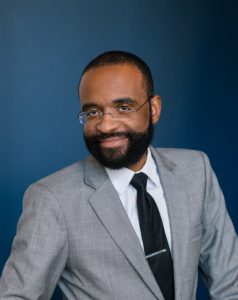
Volunteer of the Month – March 2019
Aaron Cartwright is a sole practitioner who became licensed in November 2017.
1. How did you first get involved in pro bono?
A friend knew that I was a newly licensed and setting up my practice, and recommended I connect with DVAP to help the community and gain more experience at the same time.
2. What types of cases have you accepted?
I proudly accept consumer law cases from the DVAP case list. I love them and it lines up directly with my practice area and my interests prior to law school. They make sense to me and I am better able to assist the clients.
3. Describe the most compelling pro bono case.
A furniture store had accepted a client’s payments for an item that was on layaway. The store then went out of business without providing the client the item or a refund. I received the case and started my investigation to find the proprietor of the store, who had taken the client’s money, and had tried to open the same store at least two more times in different locations, each one of them failing. She thought she could hide by using the address of the business as the owner on the Dallas County tax records, but her Facebook page had her as the owner of the business, and despite many obstacles, and I was able to confirm her address with the aid of the DVAP mentors. I wrote up the suit and filed it, but was never able to obtain service. Not because she wasn’t at the location, but for many other reasons. I learned so much during my investigation and subsequent filings.
4. Why do you do pro bono?
That question has a multifold answer. The first reason is because all things in the universe require balance and to whom much is given, much is expected. I am fortunate enough to own my own business in a field where I am able to charge hundreds of dollars per hour and still have people tell me that my rates are too low. The people that I help are often in positions where they will not ever be able to charge that much or afford that much. However, they are still under the U.S. legal system and they should still be able to obtain protection through the system. Basically, we’re all a part of this system and it shouldn’t not work for someone just because they’re economically disadvantaged. And karma.
The second reason is because the citizens who pay into the federal tax system were kind enough to pay for my schooling. They should get some bang for their buck in the form of pro bono hours from someone with my areas of expertise and willingness to help where I can.
5. What impact has pro bono service had on your career?
Mostly experience. As a solo, I get to handle pro bono cases with shorter commitment times from start to finish than some of my regular cases. The cases come quicker and are a lot more varied so there’s always something new. And, at this stage of my career, the learning is coming fast and furious.

